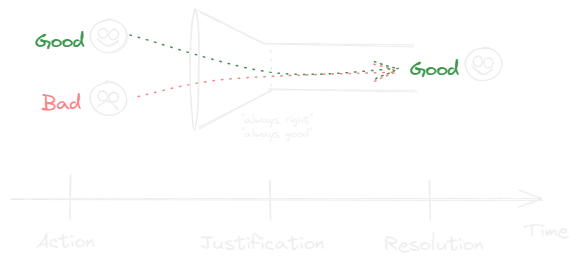Rationalization
Notes
Rationalization is when we first come to a conclusion, and only after the fact do we find justifications to our actions is vs ought, we use the situation as a justification, rather than first finding justifications which leads to actions.
Most often, we use rationalization to justify our behavior (even and especially the bad ones), to maintain Cognitive Alignment, such that our actions would match our beliefs about ourselves. In essence, that means that we can't just rely on our Rational System, because it will always point out (by chance, of course) that we are right Self Bias Conformation Bias.
This method can be abused, your memory can change by being under pressure, by presenting false evidence, by conflicting our memories vs our tendency to be obedient. We can internalize false beliefs that led us to an action, and even make us believe we did something we actually didn't do. External Influence.
Similarly, this can be a tool that hampers growth and Proactiveness. We justify the circumstances of our lives because it is convenient, it releases us from the Guilt of having to do something about it, of suffering the blame knowing that our lives would have been better if we acted differently, causing us to stay in the status quo
However there are also potential advantages. This is perhaps the reason that fake it till you make it works because if we act like the person we want to be, we rationalize it that we are truly becoming that person. change starts from the inside out.
Visual

Overview
🔼Topic:: behavioral psychology (Map) ↩️Origin:: 🔗Link::